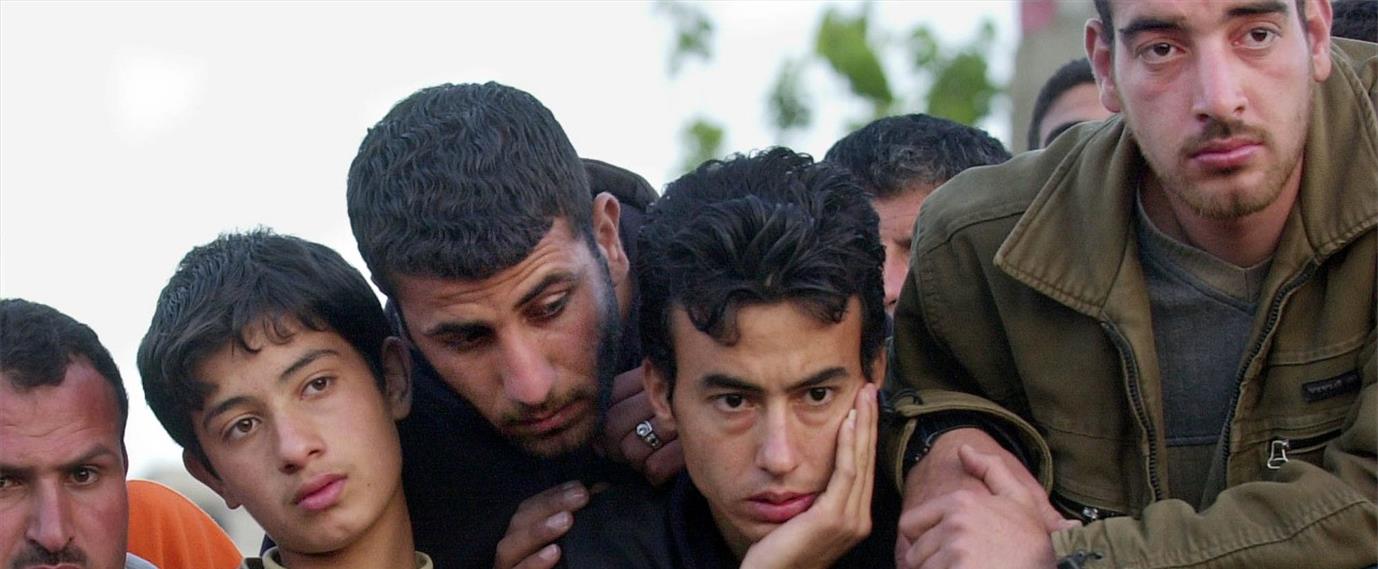أجواءُ العمل داخل مخيمات اللاجئين الفلسطينيين في الأردن على امتداد انتشارها، لا تقلُّ صعوبة عن أجواء العمل في أماكن الحروب والكوارث الطبيعية، فالمخيم لا يعدو كونه كارثة إنسانية خلَّفتها الحروب ونسيتها -أو تناستها- المنظمات الدولية لفترات طويلة، مما حوَّلها إلى ما يشبه القنبلة الموقوتة.
كرَّست مأساة المخيمات الفلسطينية على مدى عقود نمطاً داخلها جعل منها بيئة غير مثالية لممارسة العمل الصحفي. أما تجربتي في أزقة وشوارع المخيمات، فقد رسخت لديّ قناعة بأن العمل داخل المخيمات دون دراية بكينونة هذه البيئة، يشبه من يحمل جذوة نار ويقترب بها رويدا رويدا من الفتيل. فهناك اعتبارات عدة لها علاقة بتكوين المخيم الديمغرافي والتنظيمي وحتى الخدماتي قد انعكست بصورة ما على ساكنيه وأزقته، الأمر الذي يجعل المراسل الصحفي حائرا أمام الحالة التي تولِّدها هذه المخيمات، خاصة بعد كمية التحذيرات التي يتلقاها مع أول كلمة تشير إلى نيته العمل داخلها.
هواجس ما قبل المهمة الأولى
لا أنسى أول طلب للتصوير تقدمت به للعمل داخل أحد هذه المخيمات وردود الأفعال على وجوه وألسنة الطاقم العامل معي آنذاك، بدءا من السائق إلى المصور إلى المنتج، حيث طلب مني الأخير التواصل مع أشخاص داخل المخيم لتسهيل مهمَّتي، بينما اشترط عليّ المصور أن نولّي هاربين مع أول تهديد قد يحيط بنا، أما السائق فاشترط بقاء سيارته خارج أزقة المخيم خوفا عليها من الضرر إن نشب خلاف ما.
بعد أن تمتمت بكلمات بيني وبين نفسي عن هذه الهواجس، اتخذت قرارا بأن ألقي كل هذه الخزعبلات -كما أسميتها في حينها- خلف ظهري، وأن أمارس مهنتي بحرفية تنجِّيني أنا ومن معي من تلك الهواجس وتبددها.
دخلنا المخيم وبدأت بوادر ما قيل لنا تظهر شيئا فشيئا في طريقنا. كانت المهمة في مخيم البقعة، أحد أكبر مخيمات اللاجئين الفلسطينيين. ومع بدء التصوير انهال علينا كمٌّ من المتطفّلين الذين اعتدنا عليهم في كل الشوارع، إلا أن الأمر أخذ منحى آخر عندما اعترضتنا مجموعة من المتضررين من تصويرنا، حيث كانت المهمة لها علاقة بمحالَّ تجارية تنوي لجنة تطوير المخيم إزالتها.
لم أكن وجها مألوفا حينها لأهل المخيم، ولم تكن الكاميرا لتوقف فضول أصحاب المحال الذين أرادوا وقف التصوير بأي شكل، اعتقادا منهم بأننا نمثل جهة مرتبطة بالأجهزة الأمنية أو المخابرات، على حد وصفهم.. حاولت جاهدا إقناعهم بأننا نمثل قناة جاءت لتحكي للعالم والمسؤولين معاناتهم، إلا أن محاولتي فشلت، وبدؤوا بوضع أيديهم على الكاميرا محاولين منعنا من التصوير بالقوة.
المنقذون ليسوا دائما أصحاب نفوذ
في لحظة سريعة أمسكت هاتفي في محاولة بائسة للبحث عن أي سبيل ينقذ الموقف، وإذا بي أمرّ على اسم أحد أصدقاء الدراسة القدامى وهو من سكان المخيم.
اتصلت به فورا، ومع كل رنة جرس كنت أدعو أن يكون هو على الطرف الآخر من المكالمة.
رفع الخط، وما إن تحققت من نبرات صوته حتى سألته بسرعة:
- صديقي، هل تعرف أحدا في شارع العيادات في المخيم؟ فأنا أصوّر هناك وأتعرّض لمضايقات.
- نعم، أخي يعمل في ذلك الشارع.. اسأل عن شخص يدعى "الحورية" (وهو لقب شقيق صديقي الذي يُعرف به داخل المخيم)، وأنا سأهاتفه ليساعدكم.
بدأت وقتها نبضات قلبي تهدأ شيئا ما، وبصوت مرتفع قلت: أنا من طرف "الحورية"، وإذا بشخص يهتف من بعيد والهاتف على أذنه: "الشباب معاي" أي أننا من طرفه، ومنذ تلك اللحظة انقلبت الصورة رأسا على عقب لنغدو من أشخاص غير مرغوب فيهم إلى مرحّب بهم، وقدِّمت لنا التسهيلات والضيافة في كل خطوة نخطوها.
لم يكن "الحورية" متنفذا سياسيا أو رجل أمن أو حتى صاحب سطوة في المخيم، لكنه كان أحد أبناء البيئة ممن يثق أهل المخيم برأيهم ولا يشكُّون في حرصه على مصالحهم.
أدركتُ بعد انتهاء المهمة بسلام أن لغة التعامل مع أهل المخيم -الذين أجبرتهم الظروف القاسية على فقدان الثقة بالغرباء- هي لغة مختلفة عن غيرها ويلزمها وسيط أو مترجم -إن صح التعبير- لتفسيرها للناس.
لاحقا، فهمتُ واقع هذه التجمعات واتضحت الصورة لديّ بأن العمل في المخيم يحتاج إلى شبكة كبيرة من العلاقات، وأن سعيك لنقل المعلومة بأمانة وتقديم هموم الناس ومشاكلهم ليس كافيا، بل يمر بكسب ودِّهم والحفاظ على مسافة واحدة مع كافة الأطراف السياسية التي تنشط هناك، واستخدام كلماتهم ومخاطبتهم بمصطلحاتهم والحرص على تفهُّم خلفياتهم عند بدء الحوار معهم.
في كثير من الأحيان، كانت المعلومة داخل المخيم تُصادَر وتحتكر لأشخاص بعينهم وذلك لقربهم من توجهات حزب أو تجمع ما، كما أن المقابلات والتصريحات من قبل الأشخاص على اختلافهم من مسؤولين ومتنفذين وعاديين بسطاء، ربما تكون أشبه بمهمة مستحيلة إن استقرؤوا على الصحفي علامات تتناقض مع توجهاتهم وقناعاتهم.
للمخيم روح تختلف عن أي مكان آخر في العالم، ومن خلال تغطيتي للأحداث على اختلاف طبيعتها داخل هذه المخيمات، أدركت ضرورة إيجاد وسيط مثل "حورية" في كل زقاق مخيم ليكون دليلا يساعد في أداه المهمة.








































